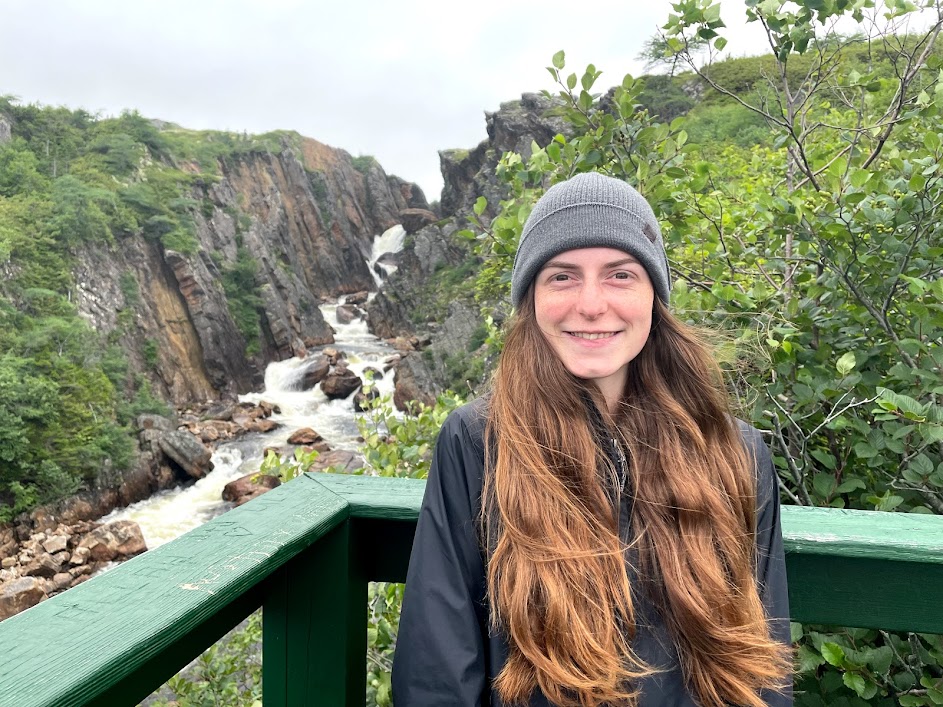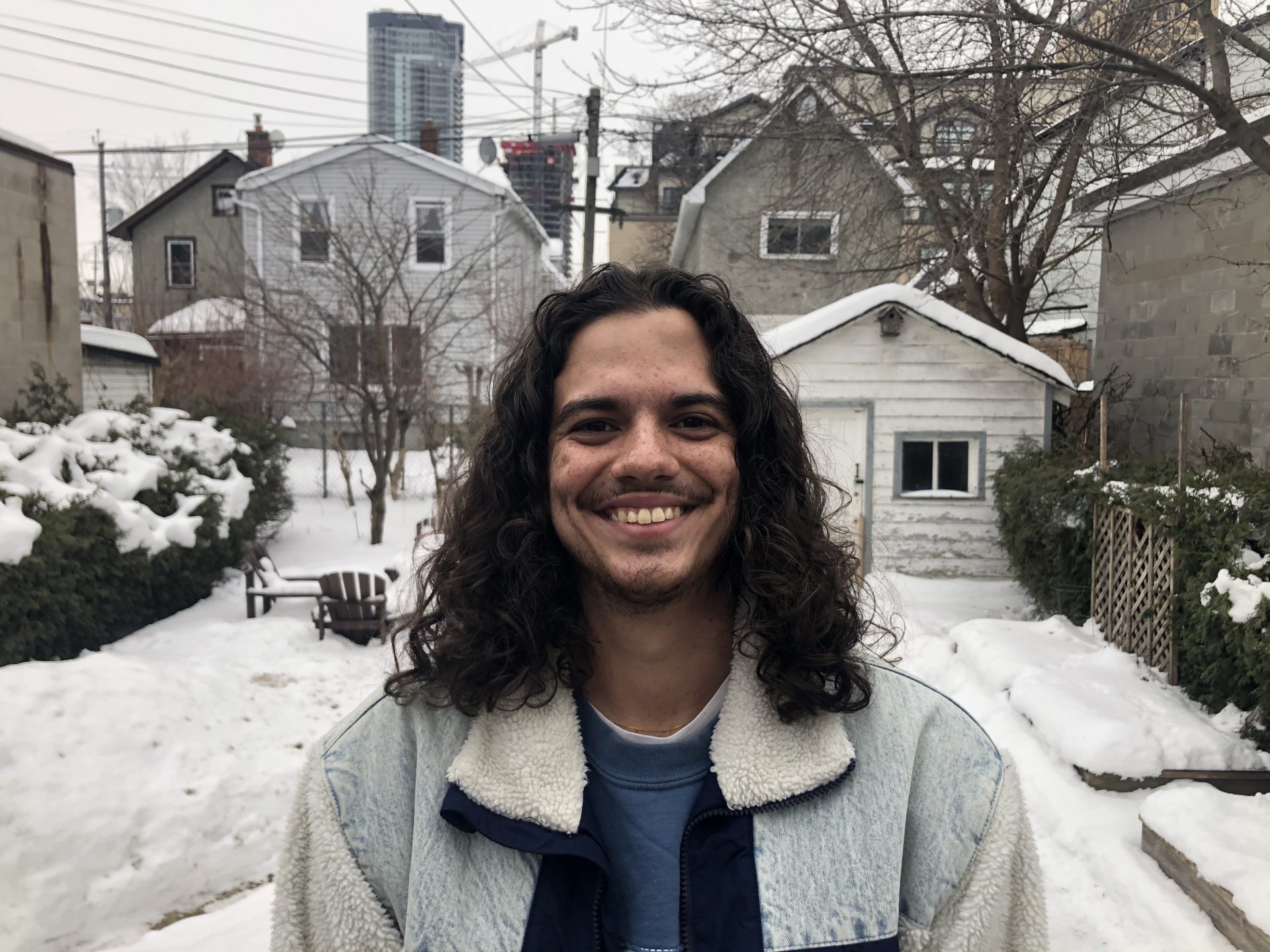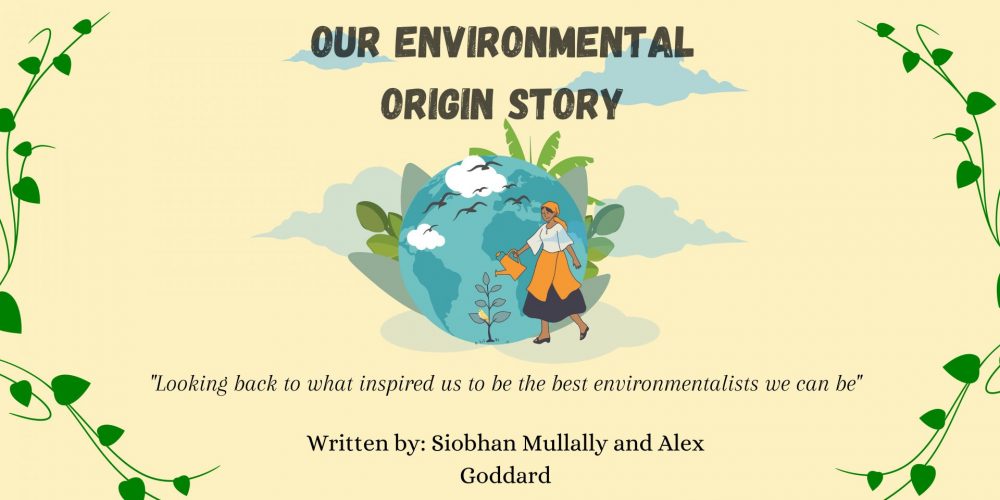We all have a different reason why we became environmentalists. For some of us, it is a lived experience, for others, it is through education, or by being inspired by the actions of others. In this piece, A\J employees Siobhan Mullally and Alex Goddard take a look back to what first inspired them to become environmentalists.
Siobhan’s Environmental Origin Story
I am about to graduate my undergrad in Environment, Resources and Sustainability with a minor in English Language and Literature. Throughout my 5-year degree, I have had 4 very different co-op jobs in environmental education, ecological lab work, environmental journalism (at A\J!), and fieldwork in Labrador for my own research. I am passionate about ecology and writing and using creative means for environmental learning. I’m a budding environmental professional and I’m eager to go into the world and make positive change.
All of this is fine and dandy, but you could learn all of that about me from my LinkedIn page. It’s only a part of my bigger story. We all have a story (or multiple) of how we have become who we are now and I often reflect on mine. It always starts with, naturally, my childhood. I’ve been an advocate for nature my entire life. I developed a relationship with nature from a young age because I had the privilege to do so. I had a heart for animals, plants, and the natural parts of life. I went camping and hiking with my family when I was young. I had parents who forced me outside to play on nice days (and there wasn’t that much else to do back then anyway). Growing up, I used my imagination to create games with nature. I climbed trees, I caught bugs and let them crawl up my arms and legs, I made “cookies” out of mud and grass and whatever other special ingredients I could find. I remember having fun outdoors and feeling free when I was.
A lot of my comfort in nature stems from my time spent at my family’s cottage in Prince Edward Island. PEI is my favourite place in the world and my heart belongs there. I was so lucky to spend most of my childhood summers at the cottage, right by the ocean. I was given a lot of freedom there. My grandparents, who were usually taking care of my sister and I when my dad couldn’t stay long because of work, let us explore to our hearts’ content. I ran around playing games with my cousins, chasing butterflies, swimming in the ocean, catching crabs and lobsters and starfish, playing in the red clay along the cliffs, and exploring everywhere I possibly could. It was a dream.
In high school, I started becoming more aware of environmental issues despite never having any formal environmental education in any of my schooling years. I started making changes in my lifestyle to be more environmentally-conscious. I began with the simplest first steps into environmental learning: I started caring about recycling and composting and reducing waste. At 16, I went vegan. A small seed of environmentalism started growing inside of me. As it grew, I started thinking more about environmental issues, and I felt driven to know more and do more. I took an interest in my high school biology classes as it was the closest subject at my school to any kind of environmental science. Then, I began to feel driven to talking to people about environmental issues. And then, the time came when I had to choose where and what I wanted to study in university. Biology was the natural choice.
I went to Queen’s University for my first year in General Science. During my year, I realized that Queen’s wasn’t the right fit for me. I also realized I was in the wrong program. I was not passionate about biology and chemistry and geology. I was passionate about environmentalism, including how humans were so tied to environmental issues, so I started avidly searching other universities for a program that suited my passion. My search led me to the University of Waterloo’s Faculty of Environment. I discovered a program called Environment, Resources, and Sustainability, which included a diversity of interdisciplinary courses with topics ranging from ecology, to environmental history; environmental assessment, policy and governance; gender and environment; environmental psychology; water governance; and beyond. From my first day in ERS, I knew it was exactly where I needed and wanted to be. I found my niche. I realized that I could spend my education – and in turn, my career and life – studying and pursuing my passion. I desperately wanted to make the world a better place for people and nature, and that has not changed in me. That passion led me here, to A\J, to tell stories about environmental topics in the hopes of informing and inspiring others. It has led me to all the spaces I’ve been able to dip my toes in my undergrad and I expect it will lead me into whatever comes next for me.
Although the passion for environmentalism is a huge driver in this field of work, it can be really hard to stay motivated at times, especially since constantly learning about environmental and world issues can be depressing and often brings feelings of eco-anxiety, cynicism, and helplessness. But staying focused on the vision of a better world is crucial. I do so by looking to my friends, my professors, and other activists. There are so many people in environmental work who are just so incredibly motivating and encouraging. Being inspired by others helps all those negative feelings fade and reignites the excitement.
I’m still a very fresh environmental thinker, writer, and researcher – it’s barely just the beginning for me – but I really do see myself spending my whole life in this field of work. As the years go by, I might become more jaded and hard around the edges, but I know the core purpose of why I chose to be in this space will be the same. It’s pretty simple. No matter where I end up or what I end up doing throughout my career, my heart for people and for nature will drive me towards the spaces that need me most. I can only hope now, at the start of this journey, that I will thrive in those spaces, places, and opportunities, and help others to do the same.
Alex’s Environmental Origin Story
My environmental origin story is probably different to yours, however, at the end of the day we all want the same thing – a sustainable future for the earth we are lucky enough to live on. I was born and raised in Barbados – a small island in the Caribbean and it is due to this upbringing that I am as passionate about the environment as I am.
From the time I was young, no one has been able to keep me from the beach or from the embrace of the ocean. As a kid I probably spent more time in the sea than I did at my house – what I would give to spend that much time in the Caribbean sun again! There has always been something about the ocean that calms me – the quietness I feel when snorkeling is a kind of stillness I have never been able to replicate, a calmness that grounds me and reminds me of the harmony that should exist between us and nature. I can remember going snorkeling for as long as I remember going to the beach. When I was young, my dad would pull me out on a boogie board so that I could see the reefs that I wasn’t quite strong enough to swim to yet. As I grew older I continued to snorkel on these same reefs and even found a few new ones of my own. To this day one of my favourite hobbies is floating along the surface of the ocean, trying my best not to disturb the fish as we peacefully coexist.
In school I was always interested in geography, more specifically earth system sciences and earth processes. The hurricanes that seemed to just miss us every year intrigued me, as well as the way that earth evolved over millennia due to tectonic movements. For example, Barbados is one of the few islands in the Caribbean that is not volcanic, but rather having been formed by the collision of the Atlantic and Caribbean plates causing a landmass to be built up. Coral was then formed on this landmass and as it continued to grow and be pushed upward, Barbados was formed. Coral reefs – pretty important! We’ll be back to them soon. As a result, my plan was always to major in geography – we didn’t have any environmental science courses at my school, so this wasn’t even on my horizon. It wasn’t until I went to Queen’s University in 2015 when I realised that while I love earth processes, I might love earth itself even more. During my first year I took general science which allowed me to take a few courses more geared towards environmental science – at the time, the first environmental science course offered at Queen’s was in second year. During this time I was also beginning to notice a change in a natural environment I knew very well. The reefs.
If you know anything about reefs I’m sure you know they haven’t been having a great time recently. Coral bleaching due to warming sea temperatures and ocean acidification due to a rise in atmospheric carbon dioxide has resulted in reefs around the world being threatened. Recently, it was announced that the Great Barrier Reef was experiencing another mass bleaching event – this time even more concerningly during the cooler periods when La Nina is in effect. I have unfortunately been able to witness these effects firsthand. I truly wish I had documented the reefs I have had the privilege to snorkel on over the course of my life. A piece of me is glad I didn’t – the memories make me sad enough, I don’t know if I could handle looking at pictures of what once was. Over the course of my life I have watched these reefs turn from bountiful underwater landscapes, teeming with vibrant forms of all ocean life, to barren, grey landscapes, covered in seaweed and fire coral. Sidenote – don’t touch any coral, however DON’T TOUCH fire coral, it feels like a third degree burn… maybe this is nature getting back at us. Not only has the coral died, but the fish which it provides a habitat for have disappeared as well. What used to be schools of vibrant parrot fish, cavalli, snapper, have turned into fleeting schools of small baitfish like sprats, or even the newly arrived and invasive lionfish species. These changes were directly as a result of coral bleaching as the water has become warmer, as well as poorly planned coastal construction projects which have resulted in fine sediments being deposited on the reefs, starving them of light.
Being able to see these changes first hand while also reading about them in textbooks or on the news was really what made me realise that my passion aligned more with protecting the earth than it did studying its processes. It also made me realise the disproportionate effects of climate change as the large countries creating the majority of these warming greenhouse gases weren’t feeling the true effects of the pollution they were causing. While people in North America joked about warmer Christmases, our reefs were dying, hurricanes were becoming more prevalent, and the worst droughts we had faced in years were causing water use bans. Imagine having trucks bring you all of the water you were allowed to use once a week. Can you? All the while continuing to peddle my home as a tropical paradise to be used to escape from the reality of the ‘real world’. It is paradise – but it’s only a consistent paradise for tourists, especially those staying on all inclusive resorts that do almost nothing for our island economy. As a result I decided to major in Environmental Science and minor in Geography. I still felt there was more to learn, and more that I could do however, and decided to pursue a Master’s Degree in Environment and Sustainability from Western University.
This brings me to today. In the past I have worked for the Caribbean Institute for Meteorology and Hydrology creating flood maps for Caribbean nations as they prepare for more inclement weather events. Now at A\J, I am lucky enough to have the opportunity and the platform to raise awareness about environmental issues. And that is really what I have always strived for. To make people aware of their actions and the consequences of living a life of blissful ignorance. Sure, it’d be lovely to drive a way-too-fast sports car, eat all the steak in the world, fly around on planes with no guilt, but that’s not the case and it never will be. At present I am happy to have some impact, and have the chance for my voice to be heard and hopefully inspire. While my initial passion for the environment may have been spurred in my home of Barbados, as we all know, climate change is a global issue and not a local one. I try my best to create positive environmental change here in Canada, as well as back home, however I know there is more to be done. I think this is something that everyone realises at some point in their environmental awakening – we can’t ever do enough. There is always more to be done and ways we can improve. I try to live my life with this in the back of my mind at all times and hope that my actions will inspire others to take action, and to always remember, to try just a little bit harder.


Alex has a background in Environmental Science holding an undergraduate degree in Environmental Studies, and a Masters of Environment and Sustainability (MES) from Western University. Alex was born and raised in Barbados, a small island in the Caribbean, and has spent the past seven years attending school in Canada, while returning to Barbados for the summer and Christmas periods. Alex is passionate about the environment as he has been able to witness firsthand the effects of climate change on marine and tropical environments, and hopes to spread awareness about these issues.













